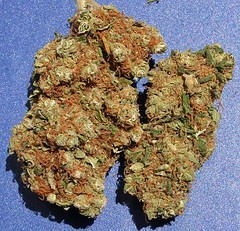“Expungement in New Jersey can be confusing… Let me answer some Expungement Questions for you”
✓ Free Expungement Eligibility Check
Take this free test to see if you are eligible for an expungement.
What is an expungement:
In New Jersey, an expungement is a legal process by which a criminal conviction resulting from a guitly plea, “no contest” or a finding of guilt by a judge or jury is set aside and the case information is withheld from potential employers and background check companies. An arrest, prosecution or conviction record still may exist. The good news is that New Jersey allows many offenses to be expunged under certain circumstances. Depending on the severity and classification of the offense, the waiting period can take from a few months to several months.
Why are expungements important:
A criminal record can provent you from getting a job, obtaining credit, obtaining housing, voting, obtaining professional licenses, and other benefits. Employers are ever increasingly using background checks to filter out potential employees. The best way to start over is with an expungement to clear your name.
Can all criminal convictions be expunged:
No. Most misdemeaners and some felonies can qualify for record expungement. A judge will usually have the discretion to decide whether or not to grant or deny a petition for a record sealing. You will only have one opportunity to petition to seal your record, so it is wise to find an attorney or law firm to handle your case for you.
Expungement defense lawyers in New Jersey:
When you are looking to have your New Jersey criminal record removed it is important to have a licensed expungement attorney working on your behalf. Choosing a licensed and professional New Jersey attorney is imperative to increase the chances of your expungement going through smoothly. Expungement proceedings can become very complex and in many cases the judge ultimately decides whether or not to expunge your record. A simple mistake may end up taking months to correct, and may result in a failed case.
There are many common typos of the word “expungement”: expung, expong, exsponge, esponge. Please note that this website is for expungement information.
Various Expungement & Record Services:
Recordgone.com is a trusted sponsor of Expunge NJ and we highly recommend them for their affordable and expedited services. If you cannot afford an attorney contact New Jersey Legal Services. Helpful tips from Recordgone.com’s New Jersey division:
If you cannot afford an attorney or wish to other attorneys who can help you with your case, contact the New Jersey State Bar Association or Legal Services of New Jersey.
Was this article helpful? Don’t forget to rate it!
Finding a Job You Love with a Criminal Record
Where Do You Fit in the Current Job Market?
Though the job market is slowly recovering, jobs are still not easy to come by. For many unemployed job seekers, any job will suffice. For others who have recently graduated or who are looking to make a career change, applying to just any job is not enough. If you looking for employment in 2014, is it advisable to hold out for that dream job, or is landing your dream job merely a romanticized ideal? There are many arguments that both recognize the benefits of pursuing your dream job, and the reality that pursuing a career in what you love may only be an option for those who come from economically secure backgrounds.
Do What You Love
According to Steve Jobs, the late entrepreneur who created Apple, in order to be successful, you need to do what you love.
In Jobs’ own words:
“Your work is going to fill a large part of your life, and the only way to be truly satisfied is to do what you believe is great work. And the only way to do great work is to love what you do. If you haven’t found it yet, keep looking. Don’t settle. As with all matters of the heart, you’ll know when you find it. And, like any great relationship, it just gets better and better as the years roll on. So keep looking until you find it. Don’t settle.”
The famous economist Steven D. Levitt echoes that same mantra in his Freakonomics podcast arguing that people who pursue what they love will always have employment because work will not feel like work, and as such the passion that someone has for their profession will give them the edge of competition. In the podcast, Levitt sites a friend whose deep love of ants has led him to become a successful expert in the field of ant study – also known as myrmecology.
The question is, what motivates you and makes you happy? People most often become successful when they find joy in doing their job well. According to David Zweig, author of “Invisibles,” the real reward is from the work itself and doing a job well done. Most of the people who became successful did so because of their passion for their work, which can be attributed to cultivating qualities such as being meticulous and taking pride in your work. Again, doing what you love can lead to success in the field of your dreams, if you are motivated by internal factors, rather than external factors such as fame and fortune.
Is Doing “What You Love” Prudent?
An article by Slate magazine called “In the Name of Love” by Miya Tokumitsu asks if it is elitist to “do what you love?” The article points out that in order to do what you love, you must have the financial stability to pursue your dream job, particularly if your dream job is one of the glamorous nonpaying jobs in industries such as film or fashion where you get experience by starting off in an unpaid internship. To do what you love may be a nice ideal, but it may also be an out-of-reach reality for most people who cannot afford to work without pay until they are able to build up their resume before hopefully landing that dream job.
“Doing what you love” also implies the negative connotations that some jobs are better than others, which is debasing so-called real jobs that involve unglamorous requirements such as physical labor. By extension, the people who work in these professions are also being debased by the assumption that they are somehow inferior to those who work in dream professions.
Getting the Job with a Criminal Record
According to the States Census Bureau, the unemployment rate in New Jersey has significantly lowered to 6.8 since its all time high of 9.7 in 2010. The job landscape in New Jersey is slowly recovering, thanks to thriving industries such as film and television, Biotechnology, and marriage and family therapy. The industry fields are varied and range from technical to creative. Depending on what you want to do, there could be a great opportunity to find employment doing what you love. That said, it is important to keep in mind that there is also a great deal of competition, so it is important to make sure that you give yourself every advantage over the competition.
Making sure that you are able to pass the criminal background check for employment is even more crucial than having the necessary work experience, education, and references. If you are unable to pass a criminal background check, chances are that human resources will not even process your resume. Fortunately, you may be eligible to expunge your criminal offense from your record, which may help you to pass most criminal background checks for employment and will allow you to legally state that you were never convicted of a criminal record. To see if you can find your dream job, check out job listings at the New Jersey Department of labor website.
Reality TV Gets Real with New Jersey Housewife has Multiple Fraud Charges
“Real Housewives of New Jersey” couple Teresa and Joe Giudice pled guilty to federal fraud charges in a Newark, New Jersey courthouse. According to reports for the Huffington Post, Teresa was “allegedly offered (a) plea deal to avoid jail time, but prosecution rejected it.” There were just under 50 counts of fraud between 2001 to 2008, before Teresa started filming the reality television show in 2009 for which she earns an estimated $600,000 a year. The Giudices are not only facing a bevy of charges, but are also facing jail time and other serious pending charges.

New Jersey photo by David Merrett
Giudice Story
According to a report from the Los Angeles Times posted on March 4, 2014, The Giudices “face the reality of prison after pleading guilty on Tuesday to federal charges of committing a long-running financial fraud.” The article states that the two “entered their guilty pleas before U.S. District Judge Esther Salas in Newark.” Joe faces of 37 to 46 months in prison, while Teresa faces 21 to 27 months in prison for, in the words of District Attorney Paul J. Fishman, “using deception and fraud to cheat banks, bankruptcy court and the IRS (Internal Revenue Service).”
According to the LA Times article, “Giuseppe and Teresa Giudice engaged in a mail and wire fraud conspiracy in which they submitted fraudulent applications and supporting documents to lenders in order to obtain mortgages and other loans.” For mortgage and bankruptcy fraud charges in addition to failing to file taxes for 4 years, lying on bank loan applications, and hiding assets and income during bankruptcy proceedings the Giudices will serve jail time, will most likely have to pay fines, risk losing their business empire – or lose a major part of their audience, and Joe Giudice, an Italian resident, could face deportation.
Fraud Charges in New Jersey
In New Jersey, fraud charges vary depending on the type of fraud and severity of the offense. The Giudices’ charges are Federal, meaning that they may be subject to both the New Jersey and Federal recommended Sentencing Guidelines.
Here are a few examples of New Jersey fraud charges and their definitions:
• New Jersey Forgery Laws (N.J.S.A. 2C:21-1):
a. Forgery. A person is guilty of forgery if, with purpose to defraud or injure anyone, or with knowledge that he is facilitating a fraud or injury to be perpetrated by anyone, the actor:
(1) Alters or changes any writing of another without his authorization;
(2) Makes, completes, executes, authenticates, issues or transfers any writing so that it purports to be the act of another who did not authorize that act or of a fictitious person, or to have been executed at a time or place or in a numbered sequence other than was in fact the case, or to be a copy of an original when no such original existed; or
(3) Utters any writing which he knows to be forged in a manner specified in paragraph (1) or (2).
• Bad Checks (N.J.S.A. 2C:21-5):
A person who issues or passes a check or similar sight order for the payment of money, knowing that it will not be honored by the drawee, commits an offense as provided for in subsection c. of this section. For the purposes of this section as well as in any prosecution for theft committed by means of a bad check, an issuer is presumed to know that the check or money order (other than a post-dated check or order) would not be paid, if:
a. The issuer had no account with the drawee at the time the check or order was issued; or
b. Payment was refused by the drawee for lack of funds, or due to a closed account, after a deposit by the payee into a bank for collection or after presentation to the drawee within 46 days after issue, and the issuer failed to make good within 10 days after receiving notice of that refusal or after notice has been sent to the issuer’s last known address. Notice of refusal may be given to the issuer orally or in writing in any reasonable manner by any person.
c. An offense under this section is:
(1) a crime of the second degree if the check or money order is $75,000.00 or more;
(2) a crime of the third degree if the check or money order is $1,000.00 or more but is less than $75,000.00;
(3) a crime of the fourth degree if the check or money order is $200.00 or more but is less than $1,000.00;
(4) a disorderly persons offense if the check or money order is less than $200.00.
L.1978, c. 95, § 2C:21-5, eff. Sept. 1, 1979. Amended by L.1981, c. 290, § 22, eff. Sept. 24, 1981; L.2002, c. 65, § 1, eff. Aug. 14, 2002.
• Credit Card Fraud in New Jersey (N.J.S.A. 2C:21-6):
a. Definitions. As used in this section:
(1) “Cardholder” means the person or organization named on the face of a credit card to whom or for whose benefit the credit card is issued by an issuer.
(2) “Credit card” means any tangible or intangible instrument or device issued with or without fee by an issuer that can be used, alone or in connection with another means of account access, in obtaining money, goods, services or anything else of value on credit, including credit cards, credit plates, account numbers, or any other means of account access.
(3) “Expired credit card” means a credit card which is no longer valid because the term shown either on it or on documentation provided to the cardholder by the issuer has elapsed.
(4) “Issuer” means the business organization or financial institution, which issues a credit card or its duly authorized agent.
(5) “Receives” or “receiving” means acquiring possession or control or accepting a credit card as security for a loan.
(6) “Revoked credit card” means a credit card which is no longer valid because permission to use it has been suspended or terminated by the issuer.
b. False statements made in procuring issuance of credit card. A person who makes or causes to be made, either directly or indirectly, any false statement in writing, knowing it to be false and with intent that it be relied on, respecting his identity or that of any other person, firm or corporation, or his financial condition or that of any other person, firm or corporation, for the purpose of procuring the issuance of a credit card is guilty of a crime of the fourth degree.
Expungement for New Jersey Fraud Charges
It is important to note that there are many types of insurance fraud, and that the penalties very depending on the severity of the charge. Anyone with a New Jersey fraud charge on his or her criminal record is encouraged to employ the legal assistance of an expungement attorney. An experienced New Jersey expungement attorney will be able to help an individual convicted of a fraud charge to clear his or her criminal record, providing knowledge of the expungement laws in New Jersey. To see if you are eligible for expungement, you can take a free expungement eligibility test at RecordGone.com.
Hate Crimes and Social Media

Hanging effigies photo by Keith Tyler
Earlier this month, eight wrestlers from Phillipsburg High School in New Jersey posted a picture that borders the line between schoolboy prank and hate crime. The issue is not that the teammates were merely displaying poor sportsmanship, but that the image they conjured very closely resembles images of lynching and the Ku Klux Klan (KKK). The decision to post the picture on Twitter – where the image could be publicly viewed and create nationwide contention- is what made a potentially private issue a public one.
The Controversial Photo
The picture is of seven of the eight boys- the eighth is taking the picture – wearing their team attire surrounding a hanging mannequin that is wearing a shirt from the opposing team. While rivalries run deep in most schools, lynching a member of the rival team – even figuratively – is hostile and threatening, rather than merely provocative. To make matters worse, two of the Philipsburg boys were wearing pointed hoodies, and the hanging mannequin was black. While the intention may not have been to promote racist sentiments, the message could certainly be perceived as such.
Definition of a Hate Crime
The Federal Bureau of Investigation (FBI) a hate crime is “an element of bias to traditional crimes” adding, “the mixture is toxic to our community.” According to the FBI website, a hate crime is the number one priority of their Civil Rights Program because “hate crime has a devastating impact on families and communities” because “groups that preach hatred and intolerance plant the seeds of terrorism here in our county.”
The FBI define a hate crime as the following:
“A hate crime is a traditional offense like murder, arson, or vandalism with an added element of bias. For the purpose of collecting statistics, Congress has defined a hate crime as a “criminal offense against a person or property motivated in whole or in part by an offender’s bias against race, religion, disability, ethnic origin or sexual orientation.” Hate itself is not a crime – and the FBI is mindful of protecting freedom of speech and other civil liberties.”[1]
The picture that the boys took could easily been seen to plant seeds of hatred, not only among their fellow classmates towards their rival team, but also of racism. Regardless of the intention of the photo, the message can clearly be interpreted as racist. Once an image – be it text or photo – is released into public domain, the image becomes subjective and can be misinterpreted. Fortunately for the ill-advised teens, their actions did not spark a wave of crime such as arson or vandalism, which would have constituted their actions as a hate crime.
The Punishment of the Participants of the Picture
Even if the picture resulted in a hate crime, the offense would not have been a Federal one. As it stands, the wrestlers were banned from their upcoming tournament, received a three-day suspension, and publicly apologized during a press conference. The young men are also facing official charges and have been instructed by their attorney to keep silent on the matter. The attorney assured the press that the picture was not intended to spur racist angst, arguing that the pointed hoodies and black mannequin were shear coincidence.
While official charges have yet to be made, one thing is certain – intention may not matter. The issue with posting images to social media, or the internet in general, is that private property – (the picture) – goes public becoming subject to public scrutiny and subject to subsequent consequences.
Clearing a Hate Crime Offense from Your Criminal Record
If the Philipsburg High wrestlers end up subject to a police investigation, they could face charges of hate crimes. A hate crime or bias crime, as previously mentioned, is not a federal crime and therefore falls to the state for judgment. New Jersey, like nearly every state, has laws prohibiting hate crimes.
Though the penalties for bias or hate crimes are not specifically articulated, there are “penalty enhancements statutes” in place that “increase the penalty for existing criminal offenses when a victim is targeted, based in whole or in part on the perception or beliefs of the actor, because of race, color, religion, gender, disability, sexual orientation, gender identity or expression, national origin or ethnicity of that person, owner or occupant of that property, regardless of whether or not the perpetrator’s belief was correct.”
If the group of wrestlers face charges, they will have a criminal record that will follow them around until they are able to have the offense expunged from their records. Unfortunately for these young men, by posting the tasteless picture online, they have cemented the thoughtless action into their history- what gets posted online, stays online. Overtime, their picture may get pushed back into the search engine boonies, but until then, the only way to remove the offense background checks for universities, employment, and housing is expungement.
New Jersey’s Medicinal Marijuana Laws

Medical Marijuana Photo by Mark Eggrole
New Jersey is 1 of 20 states to legalize the use of medicinal marijuana. The particular laws regarding the use of medicinal marijuana varies from state to state. The New Jersey Compassionate Use Medicinal Marijuana Act that was passed by Governor Jon Corzine on January 18, 2010, legally allows patients who have been diagnosed with the following diseases to ingest up to 2 ounces of marijuana per month:
- Cancer
- Glaucoma
- Seizure and/or spasticity disorders (including epilepsy)
- Lou Gehrig’s disease
- Multiple sclerosis
- Muscular dystrophy
- Severe muscle spasms
- HIV/AIDS
- Inflammatory bowel disease (including Crohn’s disease)
- Any terminal illness if a doctor has determined the patient will die within a year
- Any medical condition that has been approved by the New Jersey Health Department
The law also states that there is no age limit for patients, but that a parent or guardian must signoff for minors. The Department of Health reserves the right to approve all unspecified terms and conditions.
In September of 2013, the legislation was amended to provide for the production and sale of cannabis-infused edibles and for multiple strains of marijuana per Senate Bill 2842.
How does Someone Become a Patient?
If you are a New Jersey resident and have been recommended by a New Jersey physician with whom you have a standing relationship, you should qualify as a patient. Once you have been issued an authorized prescription, the Department of Health will issue you an identification card with your picture, name, address, date-of-birth, and your primary caregiver- or in other words, the name of the physician that is writing the prescription for your medicinal marijuana. The ID card is proof that you are legally allowed to be in possession of marijuana for medicinal purposes and therefore cannot be prosecuted.
Who can Prescribe Marijuana for Medicinal Purposes?
A “primary caregiver” who has undergone a background check, is licensed to practice medicine and surgery, and who has a bona fide relationship with the patient can prescribe medicinal marijuana to a patient. The patient must be a resident of New Jersey for the physician to recommend a patient to them. Additionally, the primary caregiver must be able to retrieve the medicinal marijuana for the patient.
The caregiver is ineligible to prescribe medicinal marijuana if he or she has ever been convicted of a felony drug offense, or if the caregiver is already treating a qualifying patient. Caregivers may only prescribe medicinal marijuana to one patient at a time, must obtain a registry identification card from the Department of Health and Human Services, and must pay a $200.00 application fee.
Who can Sell Medicinal Marijuana?
New Jersey’s medicinal marijuana law clearly states that authorized patients cannot cultivate their own cannabis. Medicinal marijuana can only be grown at alternative treatment centers-which are centers that serve the sole purpose of producing and distributing medicinal marijuana- and costs between $20 and $200 to cover the cost of production.
Places that Patients are Prohibited from Smoking
While patients who smoke medicinal marijuana are not subject to being sequestered in their homes while ‘taking their medication,’ they are restricted from smoking in many public areas. As a general rule of thumb, it is illegal to smoke medicinal marijuana in any place that it is otherwise illegal to smoke cigarettes such as on forms of public transportation, in a private vehicle while in operation, on school grounds, correctional facilities, public parks or beaches, or recreational centers. If you receive a drug charge in New Jersey, you may be able to get the drug charge expunged from your record.
Driving Under the Influence of Medicinal Marijuana
New Jersey’s Medicinal Marijuana Act articulates that it is illegal to smoke marijuana while operating a vehicle. It is also vital to remember that it is illegal to drive under the influence-which is not particular to alcohol, but can also pertain to prescriptive narcotics, including medicinal marijuana.
If a patient is pulled over for a moving violation* and law enforcement finds traces of a controlled substance in the patient’s system, presenting the prescription or ID card will not prevent the patient from receiving a DUI. The incident may also result in a criminal record, confiscation of the patient’s driver’s license, having to attend a drug treatment program (such as narcotics anonymous), and enduring the social stigma of having a criminal record for a drug conviction. If you have been charged with a DUI involving marijuana you can take a free test to see if you are eligible to have that record cleared from your background.
More great, informative articles can be found in our blog section
*A citation for a moving violation can be given to a person operating a vehicle in motion, including a car, motorcycle, bicycle, scooter, boat, or plane.
New Jersey Misdemeanor and Felony Expungements
If you have a criminal record in New Jersey, you may be eligible to have your offense expunged from your criminal record. It is important, however, to be able to distinguish not only what type of expungement is right for you, but also to be able to determine if you are eligible for an expungement and if you have met the mandatory requirements for your expungement, whether it be a misdemeanor or felony expungement.
New Jersey Misdemeanor Record Expungement
In New Jersey, if you were convicted of a misdemeanor, the requirements for an expungement are as follows:
- You must satiate a 2-year waiting period after successfully completing probation, incarceration, and payment of all fines – whichever was completed last.
- You cannot have pending charges against you.
- You cannot be convicted of a felony or an indictable offense in any state.
- You also cannot have 3 or more disorderly or petty disorderly violations.
New Jersey Felony Record Expungement
If you were convicted of a felony, or an indictable offense, the requirements for an expungement are the same as the requirements for expunging a misdemeanor with the exception of the following:
- You must satiate the 10 year waiting period after successful completion of probation, incarceration, and payment of fines –whichever was completed last.
- You cannot have have ever been granted dismissal of charges through pretrial intervention, with the exception of disorderly or petty disorderly offenses.
- You cannot have already expunged a criminal offense.
If you have met all of the requirements for your respective offense and are eligible to have your felony or misdemeanor expunged, then you may petition to have your offense expunged with the courthouse that oversaw your original hearing. The court clerk of your respective courthouse will be able to supply you with information about your case that you will need to file your petition such as the date of your arrest, the name of your arresting agency, the date that your disposition was given, and your case identification number. It is important to keep in mind that the court clerk is legally prohibited from offering you legal advice about your case or from helping you to file out your petition. For any legal inquiries, view the New Jersey Courts website at http://www.judiciary.state.nj.us/.
Read our New Jersey Law Blog for more information.
Applying for a Pardon in New Jersey
Not all cases are eligible for New Jersey expungement; however, there is another option that may be beneficial. Seeking a pardon in the state where your conviction occurred may the best solution to receive criminal record relief.
In order to apply for a pardon, there are certain requirements that may need to be met and certain application procedures that must be completed. This information can be found in great detail at www.pardon411.com.
If you are applying for a pardon in New Jersey, below you will find the eligibility requirements and process for applying.
There are no formal requirements to be eligible for a pardon in New Jersey. You may apply even if you are still serving your sentence and being confined in a correctional facility.
To apply for a pardon in New Jersey:
- Obtain a Pardon Application by:
- Calling the Parole Board at 609-292-4257
- Writing in a request to the Parole Board at:
New Jersey State Parole Board
Attn: Clemency Investigator
P.O. Box 862
Trenton, NJ 08625
- Prepare a personal statement
- Prepare two letters of recommendation
- Notarize your completed pardon application
- Submit your Pardon Application to the New Jersey State Parole Board
New Jersey Voting Rights
There are certain factors about your case that will determine if you are in possession of your right to vote. Below you will find a detailed description of these factors for voting rights in New Jersey.
In New Jersey, your voting rights are automatically restored once you have completed your sentence. Getting an expungement will also restore your voting rights.




